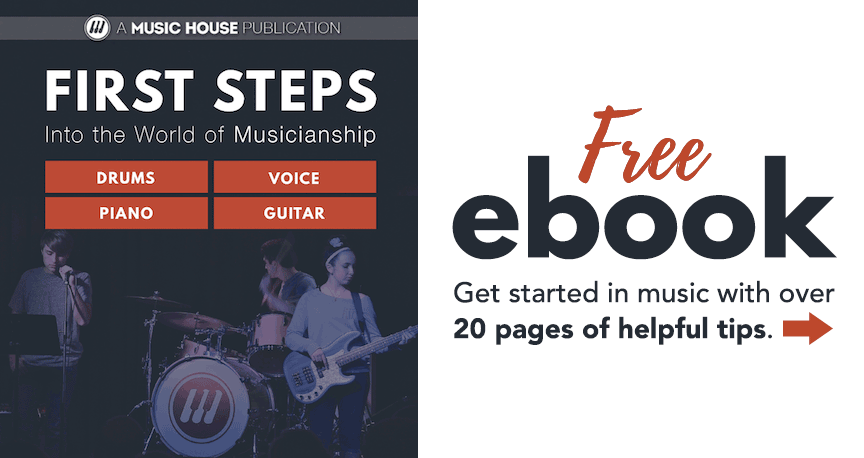7 Helpful Tips for Writing Your First Song

Budding musicians taking music lessons in Kansas City have always dreamt of composing their own songs and pieces. But getting inspired to write your first song and actually doing it are two different things.
So if you had decided to push through, then congratulations! The next part is coming up with musical ideas to create a unique and unforgettable song.
So, here are seven helpful songwriting tips from music teachers, songwriters, and experts in the industry.
1. Start With An Idea
Every musician has a different songwriting process. Some start by establishing their lyrical hook, while others, like the famous John Legend, come up with the main melody first before the hook. So, where should you start with your song?
Well, there’s really no definite answer for that question since everyone has different creative processes. But one thing’s for sure: first-time songwriters should develop a song idea first before anything else.
Establishing an excellent song idea allows you to stay on track and ensure that everything fits together seamlessly, whether you start creating the lyrics or melody first.
You can create a solid song idea by choosing what kind of story you want to tell. For example, do you want to write a song about two people falling in love, breaking up, or about a specific social issue that the world currently faces?
2. Write Your Lyrics
After developing your song’s main idea, what’s next? Again, it’s okay to start anywhere based on where your creativity directs you. But for musical beginners, most find it easier to start by writing the lyrics first, specifically the lyrical hook.
- The lyrical hook refers to a catchy or memorable phrase in your song. Generally, the “hook” can also be the song’s title or a word or phrase that’s repeated or prominent in your chorus.
However, some songwriters prefer to write the intro or chorus first, which naturally leads them to compose the rest of the song.
Just remember that it’s okay to take your time in writing the lyrics. Also, it is normal to experience writer’s block some days. So whenever you feel stuck, just go back to your song inspiration or song idea to get a clear view of what to write.
3. Come Up With an Amazing Riff
Now that the lyrics are complete, it’s time to give it life with the right music and tunes. An excellent place to start is to create a catchy riff for your song.
- The “riff” refers to a repeated chord progression or a repeated instrumental melody in a song. It usually becomes the basis of your entire musical composition.
A good way to familiarize yourself with riffs, melody, and harmony is by taking music lessons in Kansas City at Music House. Instructors can get their students acquainted with these things both in theory and practice, whether you’re a guitarist, bassist, pianist, or non-instrumental musician.

4. Compose the Melody
Up next is the melody or the tune of your song. This is the one that people usually hum to when they are humming their favorite song. Unfortunately, there really is no secret trick on how to write a good and catchy melody. Instead, you need to use your hands and experiment with different chords (e.g., major, minor) until you come up with something that you like.
Here’s a little tip: try to compose your chorus melody’s rhythm only first. Or give your song’s melody plenty of repetition to make it memorable and catchy.
While figuring out the melody, you should also consider your piece’s groove. The groove should always coincide with the “vibe” of your song. For instance, is it happy, sad, or a love song?
For example, you should opt for a dramatic or tender groove if your song is about a breakup, while one about a beautiful love story would require a soft groove. Again, you should experiment with your instrument of choice to determine a groove that matches the lyrics of your song.
Additionally, you can start creating melodies even without established lyrics yet. First, compose your song based on your idea, then supply your lyrics.
5. Follow a Song Structure
If you are having difficulty composing your lyrics, you can try following a familiar song structure. The basic ones consist of the following: an intro, verse, pre-chorus, chorus, bridge, and outro. You can stick to that one and just add some instrumental solos near the bridge or where it is needed. Some tips you can use in writing your lyrics include:
- Following a particular rhyme scheme to make your song catchy.
- Use simple language to clearly say what you want to say or elicit specific feelings from your audience.
- Don’t make lengthy lyrics.
- Write in a conversational manner. For example, think about how you would speak to a friend or a lover.
- Read the lyrics of your favorite song or artist. Take note of the repetitions, cleanliness, and how they expressed the main message of the music in the chorus.
Additionally, you should make sure that your verses and chorus connect and have a natural flow. You can create a transition in between by lowering or raising a melody.
6. Keep Your Track Simple
Don’t overcomplicate your song by adding different grooves or too many instrumentals in it. Many great tracks started out as simple songs with a melody supplied only by an acoustic guitar.
Keep it simple by focusing on your instrument of choice when composing your tune. You can always go back later on and add some finishing touches from other instruments, such as upbeat drumming or a mellow tone from the piano.
7. Collaborate and Ask for Feedback
Your worst critic is yourself. You will never create a song that’s good enough for your own judgment; chances are, you are going to tweak it nonstop and overcomplicate things that are already perfect.
So the best course of action here is to ask for the honest opinion of someone you trust with vast knowledge in songwriting and music. Then, for example, you can let your music instructor from your music lessons in Kansas City look at your rough draft and critique it.
You can also collaborate with other musicians to get new ideas and a fresh perspective on the track you are working on.

